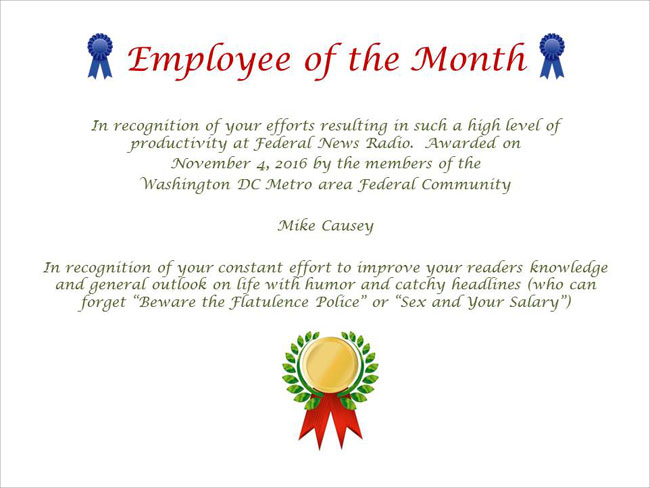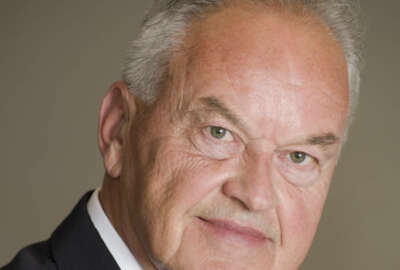
Executive bonuses: Who, what, when, where and why?
Whether you're a reporter, government executive or parent questioning a naughty child, Senior Correspondent Mike Causey says finding out why they did what they did...
Whether you are a prosecutor, contract specialist, scientist, anthropologist , journalist or simply a parent questioning a naughty child, the 5-Ws (plus an “H” for how) are necessary to get at, you hope, the truth.
More often than not, the who, what, when and where can be established. The last one, why, is often tougher sometimes because the serial killer is too sick to know, or your 12-year old really doesn’t know why he threw that rock through your next door neighbor’s window or decided to paint your family’s beloved cat red.
Friday’s column was about the government’s bonus program for career executives. The who, what, when and where are matters of record. Agencies reported who got bonuses, how much they were worth and, to some extent, why a majority of the executives were rated outstanding but not why so many didn’t get the top honors. And cash.
What the records don’t always (sometimes never) show is why some agencies (Transportation, Agriculture, Homeland Security, Nuclear Regulatory Commission and Energy) give out more awards than others. And why the value of the awards ($14,700 to $12,120) is higher in some places (Justice, Treasury, Agency for International Development and Education) than others.
Slightly more than 71 percent of all career SES executives received outstanding ratings, which is the good news. The downside is that 29 percent didn’t. Which means, what? And why?
In the column, I admitted (lamented) that I had never been given the coveted Employee of the Month award that many others have won. Several times, in fact. A long-time reader took pity and created an award, just for me. My first. Probably last. Thanks, Dixie, for that.
Here’s what several readers had to say about the executive bonus program:
“Good column (Oct. 4) , focusing on the frequent bonuses SESers get every year, but in GSA at least, the other half of that story is how small the “bonus pool” gets every year for all the other employees who are career and not in the SES. It ends up that employees who perform at the highest levels, get very little money to reward them, despite the percentage. The percentage of a small pool is a small mount of money, like crumbs being parceled out on a butcher block.
See what the management guidance was in FY 2015; we are now having performance appraisals submitted for FY 2016 but the same reduction in bonus money pool amounts year after year ever since the 2010 GSA Las Vegas scandal penalizes the exceptional employees and will likely mean we get more crumbs than real ‘bread.'” — non-SES career GSA employee
I worked for Treasury (retired recently). The article on pay; SES average of $170,000 and average bonus of $10,000, sure sounded good. I received Outstanding Ratings as an SES yet I never received a bonus over $7,000. Now don’t get me wrong. $7,000 is not bad, but when I see that many received $13,000, I can’t help but recall the leadership saying that the $7,000 was the best they could do, well it makes me think bad thoughts. It would have been nice to be part of that $170,000 average pay club too, yet alas, I was not even close.
Anyway, though I’m retired, I loved serving my government, I would do it again in a heartbeat. It’s not always about the money, though when I see what my peers may have been getting, I feel like I was on the short end of the chain.” — Call Me George

“It’s been a while since I’ve written, but know I’ve continued to enjoy your
column and upon reading today’s, well, I couldn’t let the lack of
acknowledgement from your previous employer not recognizing you as employee
of the month go by unnoticed. On behalf of the reading public (I’m quite
sure they agree me), I offer the attached.“Have a fabulous day. — D.C.
Nearly Useless Factoid
Harley Quinn and the Joker were the two most searched for Halloween costumes on Google this year.
Source: Google Trends
Copyright © 2025 Federal News Network. All rights reserved. This website is not intended for users located within the European Economic Area.
Mike Causey is senior correspondent for Federal News Network and writes his daily Federal Report column on federal employees’ pay, benefits and retirement.
Follow @mcauseyWFED





